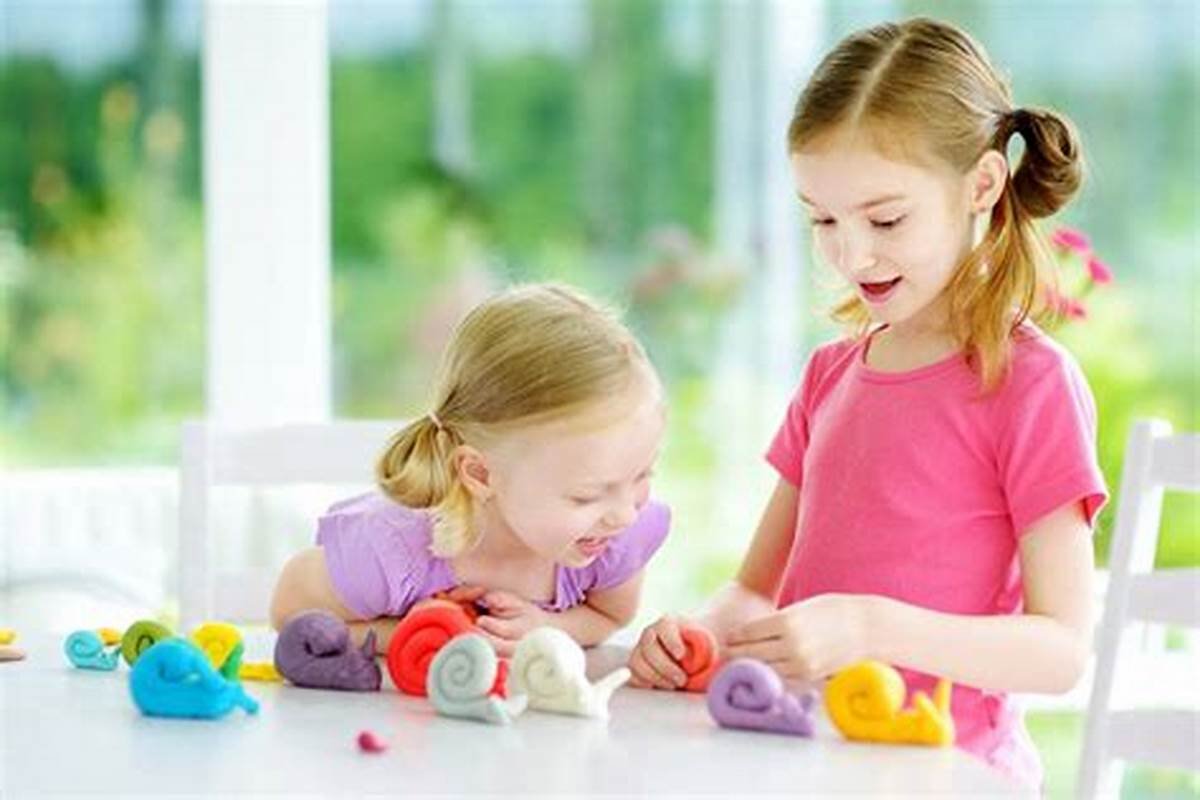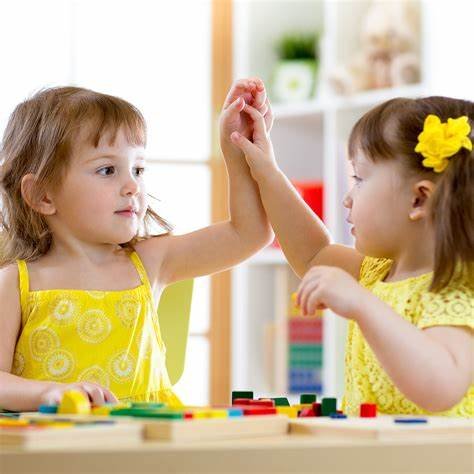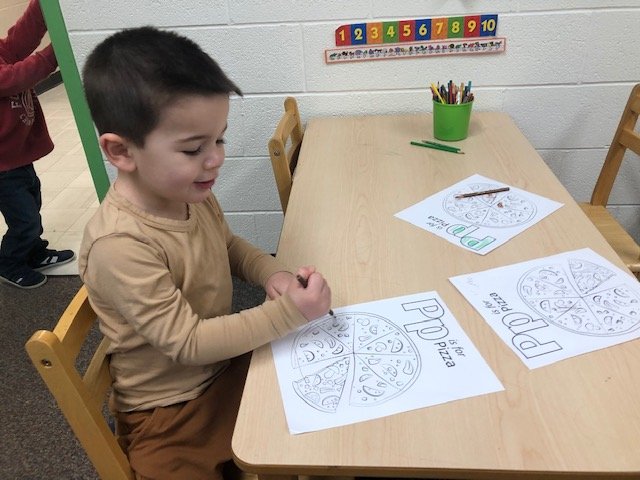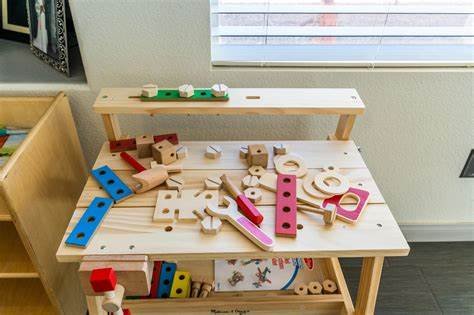Early socialization is one of the key benefits of sending your child to preschool. During these formative years, children are introduced to the world beyond their families, allowing them to interact with peers, teachers, and other adults in a structured environment. These early interactions play a critical role in helping children develop essential social, emotional, and cognitive skills that will benefit them throughout their lives.
Here’s a closer look at how early socialization in preschool can shape your child’s development:
1. Building Communication Skills
Preschool provides numerous opportunities for children to practice communication. Whether it’s engaging in a group conversation, asking for help, or sharing a toy, these experiences teach children how to express themselves clearly and understand others. By interacting with peers and teachers, children expand their vocabulary, improve their listening skills, and develop the confidence to speak in different social settings.
As children learn to communicate effectively, they also start to understand non-verbal cues, like body language and facial expressions, which are important for building strong interpersonal relationships.
2. Learning to Share and Cooperate
One of the biggest lessons preschoolers learn is how to share. In a preschool setting, children often have to wait their turn, share resources, and cooperate with others to complete activities or solve problems. These social interactions teach patience, respect for others, and the importance of teamwork.
Learning to share not only builds empathy but also helps children develop the ability to resolve conflicts peacefully. Preschool teachers guide children through disagreements and encourage them to find solutions on their own, which fosters problem-solving skills and emotional regulation.
3. Enhancing Emotional Intelligence
Early socialization in preschool helps children understand and manage their emotions. Through daily interactions, children learn to identify their feelings, express them appropriately, and deal with frustration or disappointment in healthy ways.
By observing and engaging with their peers, children develop empathy, learning to recognize and respond to the emotions of others. These early emotional experiences lay the foundation for strong emotional intelligence, which is crucial for building positive relationships and handling life’s challenges.
4. Fostering Confidence and Independence
When children are exposed to social situations in preschool, they begin to develop a sense of independence. They learn to navigate new environments, make decisions on their own, and take responsibility for their actions.
In a preschool setting, children are encouraged to try new things, explore different activities, and solve problems independently. The support and guidance from teachers and peers help build their self-esteem and confidence. As they succeed in social situations, children gain a sense of accomplishment that empowers them to tackle new challenges with confidence.
5. Encouraging Respect for Diversity
Preschool is often the first place where children interact with peers from diverse backgrounds. These early social experiences help children understand that everyone is unique and teach them to appreciate differences in others, such as language, culture, and physical appearance.
Exposure to diversity at a young age promotes inclusivity and respect for others. It also helps children develop a broader perspective of the world, setting the stage for becoming compassionate and open-minded individuals.
6. Learning Conflict Resolution Skills
In any social environment, conflicts are bound to arise. Preschool is an ideal setting for children to learn how to manage disputes constructively. Teachers often facilitate discussions about conflicts, encouraging children to express their feelings, listen to others, and find a compromise.
Through these experiences, children learn to approach conflicts with an open mind and a willingness to collaborate. These problem-solving skills are valuable both in and outside of the classroom, as children begin to handle disagreements with greater maturity.
7. Improved Social Skills for Future Success
The social skills learned in preschool are foundational for future academic and personal success. As children learn to interact with others in a positive and respectful way, they develop the interpersonal skills needed to succeed in school and later in life.
Strong social skills help children build lasting friendships, succeed in group work, and interact with teachers and classmates in a constructive way. These early lessons in socialization also provide children with the tools they need to thrive in more complex social environments as they grow older.
8. Promoting Mental and Social Well-Being
Social interactions in preschool can significantly impact a child’s overall well-being. Positive social experiences help children develop a sense of belonging and reduce feelings of isolation. Children who feel connected to others tend to have better mental health, lower stress levels, and a more positive outlook on life.
Additionally, being part of a preschool community allows children to feel valued and supported, which is essential for their emotional and mental development.

9. Establishing Lifelong Social Habits
The habits and skills children develop in preschool often continue into their later years. Early socialization teaches children how to collaborate, communicate, and respect others, all of which are vital in school, the workplace, and in life.
The relationships children form during these early years also lay the groundwork for their social network throughout their lives, helping them create meaningful connections that will support their growth and well-being as they mature.
Inspiration and Entertainment in the Digital Age
As we celebrate individuals who make the world a better place, it’s equally important to embrace small moments of joy and relaxation. Engaging in casual activities like online games can offer a refreshing pause in a busy day. Platforms such as https://www.stellarspins.ai/en/online-pokies provide a light-hearted escape that many enjoy. Finding balance between purpose and play is key to a well-rounded life.
Conclusion
Early socialization in preschool provides children with the opportunity to develop important social, emotional, and cognitive skills that shape their future success. By interacting with peers and adults, children learn how to communicate, share, cooperate, and manage their emotions. These skills are essential not only for academic achievement but for building lasting relationships and navigating the complexities of life. The lessons children learn through socialization in preschool are invaluable, and they serve as the foundation for their overall development.










